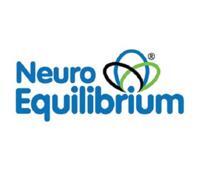Exploring the Roots of Dizziness and Vertigo: Causes and Insights
Introduction
Dizziness and Vertigo are common sensations that many people experience at some point in their lives. While these symptoms can be unsettling and disruptive, understanding their underlying causes is crucial for proper diagnosis and effective treatment. In this comprehensive guide, we will delve into the multifaceted causes of dizziness and vertigo, exploring the intricate mechanisms and conditions that give rise to these sensations.
1. Dizziness: An Overview
Broad Sensation: Dizziness is a broad term encompassing various sensations of unsteadiness, lightheadedness, and feeling off-balance.
Common Symptoms: Individuals experiencing dizziness may describe it as a spinning feeling, floating sensation, wooziness, or general instability.

A. Common Symptoms of Dizziness
Lightheadedness: Feeling "light-headed" or as if one might faint.
Nausea: Dizziness can be accompanied by nausea or sickness.
Fainting Sensation: Some individuals may feel like they are about to faint but typically do not actually lose consciousness.
Fatigue: Dizziness can lead to a sense of exhaustion or weakness.
2. Vertigo: A Specific Form of Dizziness
Distinctive Sensation: Vertigo is a specific type of dizziness characterized by a false sensation of spinning or movement. It often feels like you or your surroundings are rotating or swaying.
Inner Ear Involvement: Vertigo is frequently associated with issues in the inner ear or disruptions in the vestibular system, which controls balance.
3. Characteristics of Vertigo
Spinning Sensation: Vertigo involves a distinct spinning sensation, making it different from general dizziness.
Possible Nausea and Vomiting: Some individuals may experience nausea and vomiting during vertigo episodes.
Duration: Vertigo episodes can vary in duration, from brief moments to longer-lasting spells.
3. Causes of Dizziness
Dizziness can result from various underlying causes, including:
A. Low Blood Pressure
Orthostatic Hypotension: A drop in blood pressure when transitioning from sitting or lying down to standing can lead to dizziness.
B. Dehydration
Inadequate Hydration: Insufficient fluid intake can result in dehydration, leading to dizziness.
C. Anemia
Blood Loss: Excessive bleeding due to injury or medical conditions can cause anemia, leading to reduced oxygen-carrying capacity and dizziness.
D. Medications
Side Effects: Some medications list dizziness as a side effect, especially when starting a new medication or adjusting dosages.
E. Inner Ear Disorders
Meniere's Disease: A chronic inner ear disorder characterized by recurrent Vertigo, Tinnitus, Hearing Loss, and a feeling of fullness in the ear.
Benign Paroxysmal Positional Vertigo (BPPV): Dislodged calcium carbonate crystals in the inner ear can lead to brief but intense vertigo episodes.
4. Causes of Vertigo
Vertigo, as a specific form of dizziness, has distinct underlying causes, including:
A. Vestibular Neuritis and Labyrinthitis
Viral Infections: These conditions often result from viral infections affecting the inner ear or vestibular nerve, leading to vertigo and sometimes hearing loss.
B. Migraines
Vestibular Migraines: These migraines combine vertigo with severe headaches, visual disturbances, and other migraine symptoms.
C. Acoustic Neuroma
Tumor Growth: A benign tumor on the vestibular nerve can lead to vertigo, along with hearing loss and imbalance.
D. Medications
Certain Medications: Some drugs, such as Aminoglycoside Antibiotics, can damage the inner ear and cause vertigo.
E. Head or Neck Injuries
Trauma: Injuries to the head or neck, including whiplash, can disrupt the inner ear's balance mechanisms and trigger vertigo.
5. Diagnosis and Evaluation
A. Medical History
Patient's Account: The patient's description of their symptoms, including when they occur, their duration, and any triggering factors, is crucial for diagnosis.
B. Physical Examination
Vital Signs: Blood pressure, heart rate, and body temperature are assessed to identify potential causes of dizziness.
Ear Examination: An examination of the ears can detect signs of infection or other issues.
C. Laboratory Tests
Blood Tests: These may include complete blood counts (CBC) to check for anemia or other abnormalities.
Electrolyte Levels: Abnormal levels of electrolytes like potassium can cause dizziness.
D. Imaging
MRI or CT Scans: These imaging tests can identify structural issues in the brain or inner ear.
E. Vestibular Function Tests
Caloric Stimulation: A test involving warm and cool water or air to assess vestibular function.
Videonystagmography (VNG): Measures eye movements to diagnose certain vestibular disorders.
6. Treatment and Management
Treatment of Dizziness and Vertigo depends on the underlying cause:
A. Vestibular Rehabilitation Therapy (VRT)
Specialized Exercises: VRT is a form of physical therapy that focuses on improving balance and reducing dizziness in individuals with vestibular disorders, including Vertigo.
B. Medications
Anti-Vertigo Medications: These drugs, such as meclizine, can help alleviate the symptoms of vertigo.
C. Canalith Repositioning Procedures
Epley Maneuver: This technique helps reposition dislodged calcium carbonate crystals in the inner ear, often used for BPPV.
D. Lifestyle Modifications
Dietary Changes: Reducing salt intake can help manage fluid retention in the inner ear associated with conditions like Meniere's disease.
Hydration: Staying adequately hydrated helps regulate fluid balance in the inner ear.
Stress Management: Techniques such as mindfulness and deep breathing exercises can reduce stress-related dizziness.
E. Surgical Interventions
Invasive Procedures: In rare cases where other treatments have failed, surgical options such as vestibular nerve section or labyrinthectomy may be considered.
Conclusion
Dizziness and Vertigo are complex symptoms with a wide range of potential causes, from benign factors like dehydration to underlying medical conditions such as Meniere's disease or vestibular neuritis. Accurate diagnosis and appropriate treatment are essential to address the root causes and manage these sensations effectively. By understanding the intricate mechanisms and conditions associated with dizziness and vertigo, individuals can seek timely medical attention, improve their quality of life, and regain a sense of balance and stability.








